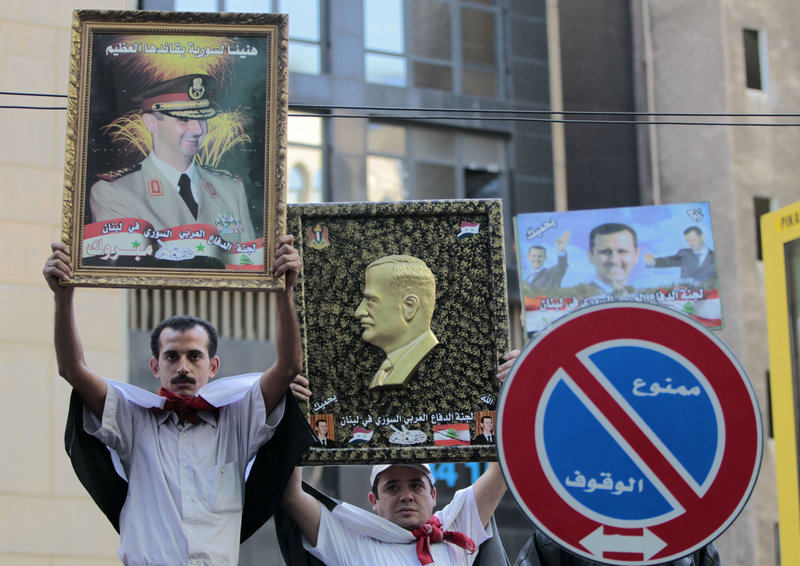BEIRUT – As his Arab neighbors abandon him and his allies in Moscow warn of impending civil war, Syrian President Bashar Assad still has a strong bulwark to prevent his meeting the same fate as the leaders of Egypt, Tunisia or Libya anytime soon.
His key advantages are the support of Russia and China, fear among many Syrians about a future without Assad, and the near-certainty that foreign militaries will stay away.
But after eight months, the popular uprising is morphing into an increasingly bloody armed conflict that will test Assad’s strongest allegiances.
“This is all looking very much like a civil war,” Russian Foreign Minister Sergey Lavrov said Thursday in Moscow, expressing alarm over an attack this week by the Free Syrian Army, a group of army defectors determined to bring down the regime.
There was no sign that Russia’s support for Damascus was wavering; indeed, Lavrov appeared to be condemning anti-regime forces for the escalating bloodshed. Lavrov also urged Syrian and opposition forces alike to cease violence and negotiate.
“It is not a secret that along with the peaceful demonstrators, whose strivings and demands we support, there is more and more participation from groups of armed people who have an entirely different agenda from reform and democracy in Syria,” he said.
Asked about Lavrov’s remarks, U.S. State Department spokesman Mark Toner said Washington does not view the conflict as a “civil war.”
“There has been a concern expressed around the world at the possibility of an escalation in violence,” Toner said. “But again, let’s be very clear that the primary author of the violence in Syria is the Assad regime.”
Toner added: “It’s not surprising that Assad’s campaign of violence against the Syrian people has led to this, but it’s a very dangerous path.”
Until recently in the uprising, most of the violence came as security forces fired on mainly peaceful protests. But there have been growing reports of army defectors and armed civilians fighting Assad’s forces — a development that some say plays into the regime’s hands by giving government troops a pretext to crack down with overwhelming force.
Assad blames the unrest on a foreign plot to destabilize Syria, saying extremists and terrorists — not true reform-seekers — are driving the calls to oust him.
In Istanbul, Turkish Prime Minister Recep Tayyip Erdogan said the world must urgently “hear screams” from Syria and do something to stop the bloodshed.
“The lack of reaction to massacres in Syria was causing irreparable wounds in the conscience of humanity,” said Erdogan, whose country has imposed an arms embargo on Damascus and is sheltering more than 7,700 Syrian refugees.
Moscow’s ties to Damascus stretch back to the Soviet era, when Syria relied heavily on economic and military aid from the former Soviet Union during the Cold War. In the mid-2000s, then-President Vladimir Putin was qu oted as saying that Russia would re-establish its place in the Mideast via “the Syria route” — that is, by strengthening ties with Damascus.
Damascus still relies on Russian military equipment, receiving fighter jets, air defense systems and armored vehicles.
Syria has seen the bloodiest crackdown against the Arab Spring’s eruption of protests, with nearly 4,000 people killed since March. Deaths in Egypt, Tunisia and Yemen have numbered in the hundreds. Libya’s toll is unknown and likely higher than Syria’s, but the conflict differed there: Early on, it became an outright civil war between two armed sides.
Send questions/comments to the editors.



Success. Please wait for the page to reload. If the page does not reload within 5 seconds, please refresh the page.
Enter your email and password to access comments.
Hi, to comment on stories you must . This profile is in addition to your subscription and website login.
Already have a commenting profile? .
Invalid username/password.
Please check your email to confirm and complete your registration.
Only subscribers are eligible to post comments. Please subscribe or login first for digital access. Here’s why.
Use the form below to reset your password. When you've submitted your account email, we will send an email with a reset code.